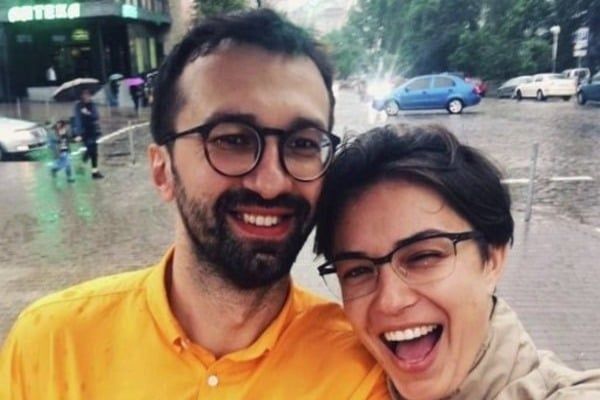As a discussion with respect to Ukrainian MP Sergiy Leshchenko shows, the life of a Ukrainian state official creates numerous opportunities for public outrage over his real or perceived sins. A state servant leads an apparently better life-style than a person with a comparable income could afford. Does he take bribes? Does he earn income from prohibited sources? Is there a difference? What about paying taxes on such unofficial income? Is the explanation for sources and nature of income for expensive purchases true?
The article argues that the Leshchenko’s case, even though not showing conclusive evidence of any wrongdoings, as explained below indeed warrants an investigation, along with other recent cases of public officials potentially receiving undue preferences and benefits, which, unfortunately, have not drawn as much attention from the public and the official investigative bodies.
What happened?
A new member of the Ukrainian Parliament Sergiy Leshchenko buys an apartment many view as luxury and registers it in his name. Part of the money is apparently his own, as supported by the recent declarations. The rest is claimed to be borrowed from his girlfriend Topolskaya and an owner of a news outlet Prytula. The apartment might have been bought with a discount. Leshchenko’s purchase is being reviewed by the National Anti-Corruption Bureau of Ukraine, based on the application of the MP himself.
This contrasts with the situations where the expensive property publically does not belong to the state servant. For example, a Ukrainian MP and the head of Radical Party Lyashko is reported to live at a a large house leased at a price of a small apartment. Similarly, the ex-prime minister of Ukraine and the leader of Batkivshchyna Party Yulia Tymoshenko appears to enjoy a life at a mansion in Kyiv suburbs owned by her cousin. Another MP’s Homutynnik, who works continuously as an MP in the Rada since 2002, is claimed to use have celebrated his 40th birthday on an expensive boat and and used personal plane rumored to be his. None of these cases triggered a review for any potential violations or a significant public outrage.
What if there were no loans and it was Leshchenko ’s own money?
Has Leshchenko indeed borrowed money? Or was it a pretense? Could it be that he used his own money for the purchase? The doubts are educated by good understanding of the Ukrainian realities. The same excuse, borrowing money from a friend, albeit with respect to much higher amounts, was used by the judge Zvarych, later found guilty and sentenced to ten years of jail, and other officials suspected of corruption.
A politician unable to satisfactory account for a sudden and significant increase in wealth may be found guilty of a criminal offense referred to as illicit enrichment[1]. Thus, there should better be the loan agreements or another explanation. Two basic alternatives to borrowing are possible. First, the money could be earned in 2016, and not yet subject to declaration. Legal sources are limited to the MP’s salary, payment for teaching, copyright, scientific work, interest and the like. Earning money from any other source is an administrative offense, in the best case scenario. Presents are allowed from close relatives only. Second, the money could be the savings of the MP. According to Leshchenko’s disclosed declarations for 2013 – 2015, his earnings were not insufficient for such an investment. His illegally leaked declarations for previous years suggest he could have legally earned the required amounts. The declaration for 2015 does not show any savings, however. True, they could have been kept in cash. In this case, there was no line in the declaration for disclosing them, which can be used as a defense against accusations of failing to properly declare the available funds.
Irrespective of legality of the sources for the purchase, the price of the apartment should not be favourable to MP even if the same discount may be given to other buyers; it might well be that the price was the luring factor in the acquisition, but Mr. Leshchenko has to come above the threshold of the “minimum market price”: anti-corruption legislation characterize as a gift any preferences, benefits or services provided for free or at a price below the minimum market price, unless such discount is generally available. While there could be no preferred method to determine such discount on downtown Kyiv real estate market, the appearance of impropriety in the explanations offered by MP Leshchenko is at least as important as the fact that such discount may be a few thousand hryvnias short of specific amount, sufficient to impose administrative penalty of up to UAH 3400 and confiscation of the gift. I.e., the lower price should be scaring factor for the public officer and civil servant.
At the same time, discounted price of the apartment cannot be a ground for tax evasion claims.
What if Prytula and Topolskaya indeed gave the money?
Few things are known about the Prytula’s loan. It is for 10 years, probably in writing, might be in foreign currency. The interest rate, if any, is unknown, and so whether or not the loan is secured by mortgage or pledge. Nothing at all is known about the other loan.
The law allows MPs to borrow money if there is no conflict of interest or hidden payment/benefit. The loan could also indicate certain violations.
Without a written agreement or other documents confirming that the funds must be repaid, the money given by Prytula should be treated as a gift. The presents in such amounts are forbidden for state officials[2], unless given by close persons. Prytula does not qualify. Depending on the amount and circumstances, one could allege an administrative offense[3] , a crime of illicit enrichment[4] or, if it is proven that the money transfer is linked to the official duties of the MP, a bribery[5]. Money from Topolskaya could be legal if the MP and his girlfriend live together, have joint household and enjoy mutual rights and obligations of a family nature[6].
If there are agreements, the terms are important. Use of foreign currency or charging interest would be acceptable[7], but the interest rate and security structure should be compared to the market conditions. To the extent they are unusually favourable (e.g. no interest, no security), the benefit enjoyed by Mr.Leshchenko could be viewed as a gift. The test is to compare the terms with “minimum market price”[8]. The law and existing practice are not clear as to how to determine such minimum market price with respect to loan terms, and whether the benefit can be pinned to a specific amount, which is important in order to determine the penalty for administrative offense.
The case may also raise questions as to the conflict of interest, which Mr. Leshchenko had an obligation to prevent. Considering that the borrowed amount exceeds Leshchenko’s earnings for the last three years, such loan could potentially provoke certain financial dependence on his creditor and, therefore, create an opportunity for the creditor to influence his decisions and actions, which creates a potential conflict between his private interest and public duty.
Have Leshchenko and Topolskaya just purchased it together?
If it were not a loan, then it might be the intentions of Leshchenko and Topolskaya to jointly purchase the apartment. They could have registered it as joint property in their names, if it were not for an obligation to present a notarized consent of Mr.Topolsky, still an official husband of the MP’s girlfriend. No official paper is required for granting a non-notarized loan, as the consent of the spouse is then presumed.
Sergiy Leshchenko with his girlfriend Anastasiya Topolskaya. Source: obozrevatel.com
If it was indeed the case, then when purchasing the apartment the MP acted as an undisclosed agent for his girlfriend and/or a nominee owner for part of the apartment. Ukrainian law does not recognize such concepts in case of trading in real estate. The consequences are legal uncertainty for Topolskaya[9], should her boyfriend refuse to legally transfer part of the apartment to her after their marry.
The scope of claims of the husband would also vary depending on legal structure of the transaction. If the wife has a title to the apartment, absent a marital contract the property share would be considered joint property of her and her estranged husband. In case of a loan, subject to joint property would be her claims of the creditor under the loan agreement, i.e. the right to a share in proceeds from the repayment of the loan if and when received.
What about leases of Tymoshenko and Lyashko?
More experienced professional politicians prefer not to use luxury assets registered in their own names.
For example, in 2015 Ms. Tymoshenko appears to be using 588 square meter house and 59.4 square meter apartment for free (declaration contains no reference to expenses related to leases). In 2014, apparently the lease of the same house cost UAH 200,000 (based on the original declaration published at the official web site of Ukrainian Parliament and analysed by mass media on 3 April 2015). Assuming the lease amount covers a year, it is a normal rent for a good apartment in the city centre of Kyiv rather than a huge house in prestigious Kyiv suburbs. In the declaration for 2014, corrected without any apparent legal basis, the reference to the amount of lease payment was deleted, thus again suggesting that the house might have been used free of charge. Oleh Lyashko in 2014 leased a 549,5 square meter house for UAH 60,000.
Even though both situations may indicate the use of property for free or at rates significantly lower than a market price, provisions on illicit enrichment are not applicable here for two reasons. First, the indicated lease expenses (be it even zero) are within the amount of declared income. Second, receiving a discount does not lead to increase of assets, even though results in significant savings for the recipient. Thus, proving a criminal offense would require providing evidence of a bribe, i.e. that the provided benefits was a payment for favours provided in official capacity.
Proving an administrative offense is easier. Provision of services for free or at price lower than minimum market price, as well as of preferences and benefits may qualify as a gift the use of which is limited, as outlined above. As a defence, the declarants may claim errors in their declaration (probably a mere administrative offense).
What about all these planes and boats?
An even better alternative to a lease might be pretending that the asset is neither owned nor used by a person. For example, a Ukrainian MP’s Homutynnik is rumored to use a boat worth USD 24 mn and a USD 17 mn worth plane. If the rumours are true, two scenarios are possible. Mr. Homutynnik may own the assets directly (very unlike for the reasons outlined below), or indirectly, through a controlled or an officially uncontrolled company or person.
The declaration of Mr. Homutynnik for 2015 year is silent on any yachts or planes being owned, permanently leased or used on other grounds by him or his family. Thus, if the MP were a direct owner, he would face a liability for failure to declare the assets. In addition, it is not clear how the MP could have bought the assets directly without violating Ukrainian exchange control regulations. Despite high income of the MP, the questions might also arise with respect to illicit enrichment.
If, instead, someone else is a registered owner of the boat and the plane, then the beneficial owner may use them based on a lease or service agreement or without any legal grounds. The use of a vehicle under foreign law may be documented by a charter contract, power of attorney, exchange of emails any similar document or arrangement. Thus, the legal treatment would depend on whether any payments were made to the title holder by the person. Without them, using the boats or planes can be interpreted as a gift, with the implications described above.
The beneficial ownership of companies holding the assets, if disclosed, would probably indicate past violations of the law. Showing the link is tricky, though. Just as would be proving crimes such as illicit enrichment, trading in influence and alike which the use of luxury items might be an indication of.
Conclusions
The introduction of electronic declarations for state officials this year should address some of the problems made apparent by the discussed cases. First, the updated form of declarations is very detailed, covers assets such as for example money in the form of cash, and requires disclosure of asset value where possible. Second, declarations now may not be amended following set period of time, and their submission and content will be controlled and verified by the National agency on corruption prevention. Third, declarations are easily accessible. Thus, Ukrainian public may also analyze the information for the compliance with anti-corruption laws, and, if needed, complain of the inconsistencies (see, for example, this option).
The cursory review of the declarations filed so far and the case with Leshchenko and others show, however, that not only public, but also state officials might benefit from better understanding of the anti-corruption legislation, specifically, circumstances that might raise questions as to their full compliance with the law. Trainings, along with detailed guidelines on filling up the declarations, might be helpful.
There are also gaps in the existing legislation (for example see footnote 2). The focus, however, should currently be on enforcing the existing anti-corruption legislation, which is good enough, rather than its constant improvement. Particularly important is attention to indirect infringements. Few corrupt officials would openly take money, promise favors, put their signatures on outrightly illegal papers. Things are done in a more subtle way, more indirectly. This has to be accounted for. As the court practice develops, it will become apparent where the real gaps are and which legislative changes would be helpful in fighting the corruption.
Notes:
[1] Article 368(2) of the Criminal Code of Ukraine.
[2] The wording of Article 23 of the Law of Ukraine “On Fighting Corruption” may suggest that the prohibition applies only if the gifts are connected to performance by the recipient of the state or local governmental functions (i.e., a more narrow notion of a bribe). This would not be a proper interpretation of the law for (i) it would be redundant to “good old” corruption felonies such as bribery and embezzlement and (ii) it would go against the objective of the law, which was introduced to penalize inappropriate practices linked to the foregoing illegal activity or effectively leading to corruption (gifts and favors taking). Therefore, once the price of the gift is established, there is no need to prove the link with the official functions of the recipient or Article 23 will be fully impotent.
[3] Under Article 172(5) of the Administrative Code of Ukraine, a penalty for such offense is a fine of up to UAH 3,400 and confiscation of the amount received.
[4] Under Article 368(2) of the Criminal Code of Ukraine, a sanction for such crime depending on the severity of the crime is imprisonment for up to ten years, disqualification to hold certain positions or engage in certain activities for up to three years and confiscation of property.
[5] Article 368 of the Criminal Code of Ukraine.
[6] The gifts from “close persons” are exempt from gift limitations of article 23 of the Law of Ukraine “On Fighting Corruption”.
[7] See for example the position of the Supreme Court of Ukraine on use of foreign currency and charging of interest in the loan agreements between individuals.
[8] In the current case, the rate discount, if any, can be treated as a benefit received free of charge. Alternatively, the interest rate can be treated as payment for the service of providing money and compared to standard interest rates.
[9] Because of the option used for documenting the transaction, Topolskaya legally has no claim to the apartment itself, only to the repayment of the money she advanced on the condition of repayment. As for the claims that the purchase agreement contained a statement of Mr.Leshchenko that the property is purchased using his own funds, such statement would not be a violation, because granting a loan results in transfer of the title to the funds to the recipient. Where the transaction is documented as a loan, the subsequent transfer of title to a part of the apartment could be documented via a purchase agreement, the payments of which could be settled against loan debt.
By: Zoya Mylovanova (VoxUkraine Law), Dmytro Boyko, Vasyl Yurmanovych (Integrites)
Attention
The authors do not work for, consult to, own shares in or receive funding from any company or organization that would benefit from this article, and have no relevant affiliations






